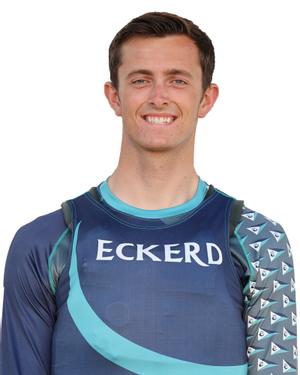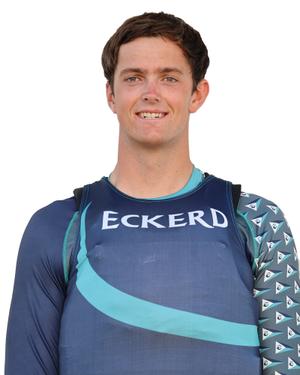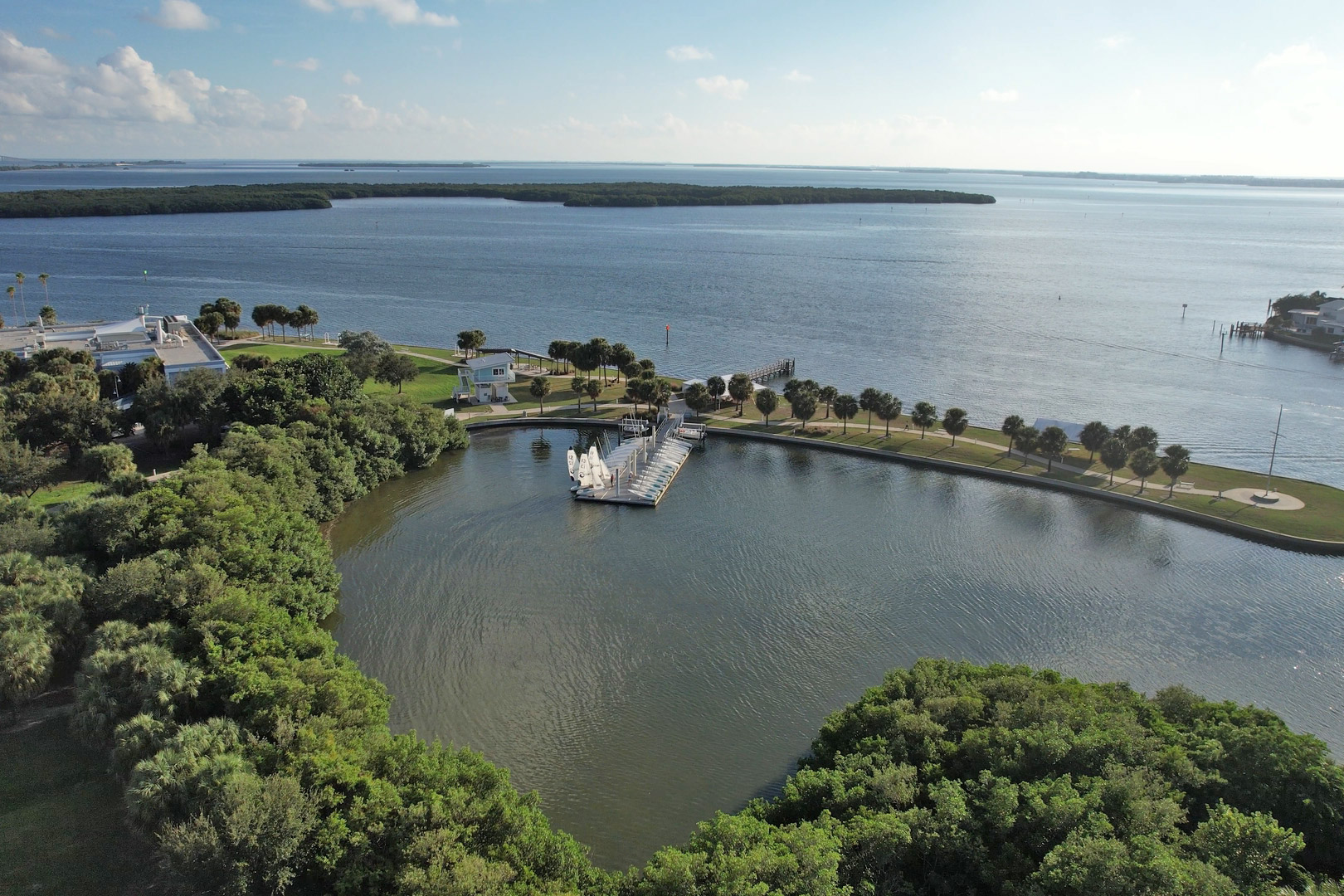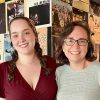Team sailboats docked at the Doyle Sailing Center cove, with Boca Ciega Bay in the background.
Twins Cameron and Cooper Robinson, from Englewood, Colorado, have been sailing almost as long as they have walked, and when they were looking for colleges to attend, they quickly found Eckerd.
They had been recruited by other schools, but Eckerd offered a competitive Coed Sailing program, an intimate waterfront campus and something else. Something that stopped their search in its tracks.
Eckerd College’s 3-2 Engineering and Applied Science dual degree program.
The five-year program offers smaller classes and more attention from professors during a student’s first three years at Eckerd.
But the program also is demanding; what most students accomplish in four years, 3-2 students are asked to do in three.
After three years at Eckerd, students then choose to attend Washington University or Columbia University for the final two years, where they take specialized engineering courses. At the end of the fifth year, students will have earned two bachelor’s degrees.

Cameron Robinson

Cooper Robinson
Last spring, Cameron and Cooper left Eckerd after three years and are currently attending Washington University’s McKelvey School of Engineering in St. Louis, Missouri. They both are studying to receive a bachelor’s degree in electrical engineering.
“I began the program when I enrolled in 2019,” Cameron says, “but I had the backup option of getting a degree in physics or math. So if I decided I didn’t want engineering, I could have stayed with physics or math.
“I would recommend the 3-2 program to anyone who doesn’t know yet what discipline in engineering they want to pursue—civil, electrical, aerospace. What I liked about Eckerd’s program is that I got advanced courses in math and physics, which are commonly seen in each type of engineering.
“Most engineering schools start you out with engineering coursework before you’ve taken advanced math and physics,” Cameron explains. “At Eckerd, it was nice to have taken those advanced courses first, instead of struggling those first years in engineering school. It’s a big time commitment. But all the professors at Eckerd want you to succeed, and they’ll always get you the help you need. There was always a way to figure things out.”
That includes financial help, Cameron says. “For those considering Eckerd and the Engineering program but they’re struggling financially, there are always ways to get help. That was the biggest thing that scared me at first. I paid for college myself, and Eckerd was a huge help. Every semester I got scholarships. As long as you’re willing to work, finances should not be an issue.”
Anne Cox, Ph.D., professor of physics at Eckerd, mentors the 3-2 students. She says any student can join the program at any time. “But because of the tight timeline that they complete all the Eckerd requirements in three years, most students start the day they arrive on campus.
“Cameron and Cooper were a good fit because they followed through on everything and maintained a B-plus or better grade point average,” she adds. “They had to be on top of things and really focused on how to organize their time. And having to deal with the pandemic added to the challenge.
“They’re really well balanced in their approach to college,” she says. “And then we, as faculty, worked with them to help bring them up to their potential.”
The program has been in place for more than 25 years, she says, with about three students a year completing it. “They’re mostly physics, mathematics and computer science majors, but we do have a couple who majored in international business,” Cox adds. “You can do any major, but most pick a major that is math and physics heavy.”
To help students decide if engineering is in their future, Eckerd offers an intense 11-day Winter Term course at Washington University to give students a taste of what the second part of the program is like. “It’s not mandatory,” Cox notes. “But it’s a good course to take.”
The Robinson brothers are sharing an apartment this year in St. Louis, and although Washington University has a sailing club, “We don’t have time,” Cameron says. “I’m taking 17 credits this semester and 19 credits next semester. These last two years will be more difficult, and we’ll miss the people at Eckerd, but it will be worth it in the end.”
Cooper agrees. But he still misses sailing. “I felt sailing almost kept me sane, and it helped me stay focused on my goals,” he says. “It gave me more determination. But I think my resume looks more impressive with Eckerd College and Washington University on it. And I feel more comfortable at job interviews.”
There is a very small group of students who can do this, Cox says. “Most years we start with five to 10 students who think this is what they want, and end up with two or three. But we can say that 100% of the students who went into Eckerd’s 3-2 program have completed it. I feel really good about the preparation we give these students.”














